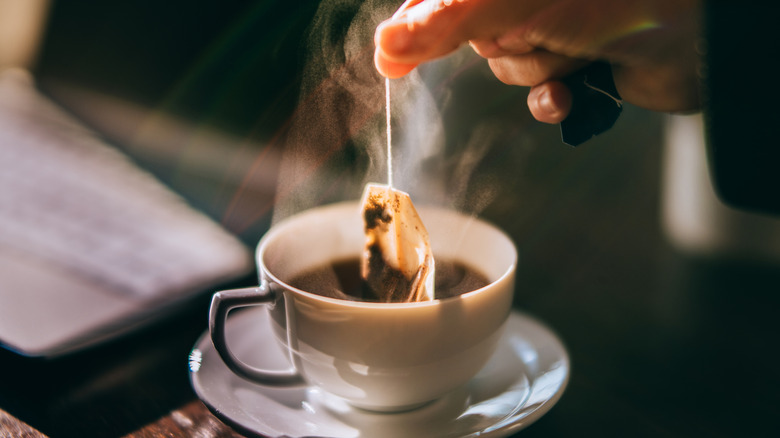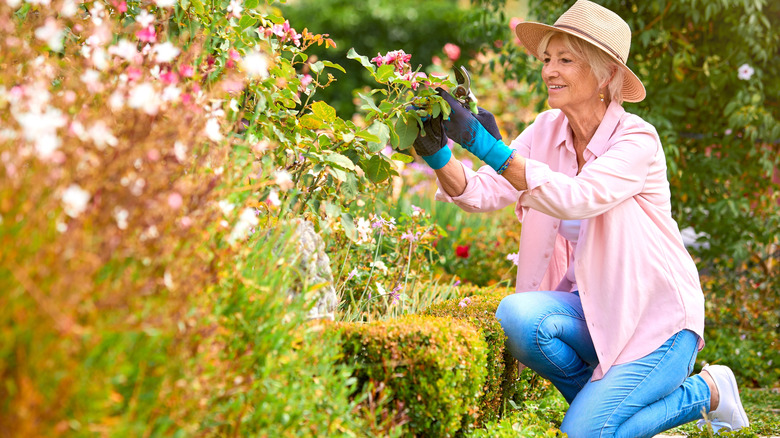The Clever Way To Repurpose Tea Bags For Your Garden
Avid home gardeners can be as passionate about giving their gardens all the nutrition they need as they are about feeding their family healthy foods. Chemical fertilizers may be inexpensive, but they also cause water contamination, overgrowth, climate issues, and plant damage. So, it's no surprise that some of the leftovers from family meals and morning brews are making their way into flower beds and vegetable patches. After all, it's a great way to reuse coffee grounds, banana peels, and eggshells. Should you add some English breakfast tea or Earl Grey to that mix? Scientists and gardening experts agree that using a spot of tea is spot on.
Tea contains several components that allow it to help plants thrive. Tea, first and foremost, contains nitrogen, a critical component of chlorophyll, which is needed to help plants grow. The odor of tea — especially stronger-smelling varieties like cinnamon and mint — deters pests like slugs, rodents, and snails. The tannins in tea, the substances that give tea its slightly bitter taste, can prevent against fungal and bacterial infection. Another important nutrient in tea is potassium, which helps plants grow and reproduce while also protecting them from drought, excess water, high and low temperatures, and pests. Finally, the phosphorus in tea can help plants capture sunlight and convert it into important plant compounds.
It may not be tea time for all of your plants
There are several caveats to using tea to fertilize a garden. While bagged tea is easier to use, the bags may not be 100% paper — which would break down in the soil — and may have plastic particles that will contaminate the soil. You also need to remember to remove any staples attached to the bags. That's one reason to brew with loose-leaf tea, or to perhaps empty the bags before adding them to the soil.
Scientists also suggest putting the tea leaves or bagged tea into the compost bin before using it as a fertilizer. Not all of the nitrogen in tea is available to plants. Composting it along with other bio-waste increases nitrogen levels, as well as potassium and phosphorus.
Another concern is whether or not tea is too acidic. While you can use tea for an indoor herb garden or outside, you need to make sure you use it only with acid-loving plants, like azaleas, begonias, tomatoes, strawberries, and most vegetables, and avoid those to which acid is harmful, like geraniums, hibiscus, and daisies. Tea also becomes more acidic when steeped since the hot water extracts more of the tannins out of the leaves, so leave the brewed tea for those acid-loving plants. And, if you do use brewed tea, remember not to use hot tea or you'll burn your plants. Also, you might like your tea with milk and sugar, but your plants don't.

